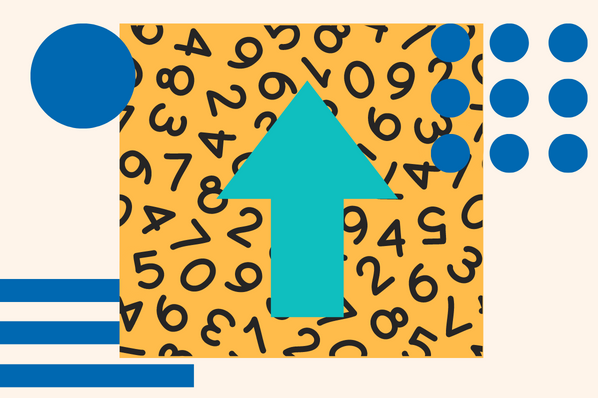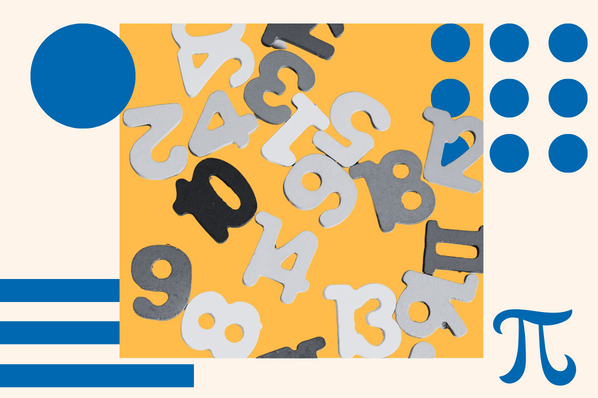PHP and Node.js are popular technologies for server-side programming. PHP is a general-purpose scripting language for web development used by many websites and applications.

Meanwhile, Node.js is a runtime environment that allows developers to run JavaScript on the server side and is great for building fast, scalable, and efficient back-end applications.
While they are different tools, Node.js and PHP work within similar technology ecosystems and provide similar functionalities. As a result, it isn’t easy to choose between them.
In this post, you’ll learn about the differences between PHP and Node.js and what you need to know before deciding which to use for your next project.
The History of PHP
Created by Rasmus Lerdorf in 1993, PHP was initially called “Personal Home Page” before evolving into a complete programming language under its new name, “PHP: Hypertext Preprocessor.”
In the early days of the web, developers mainly used PHP for server-side programming. However, it quickly became known as a cornerstone of web development when it was combined with other technologies to create the Linux, Apache, MySQL, and PHP (LAMP) stack. This software bundle quickly gained popularity as a powerful, open-source platform for developing and deploying dynamic web-based applications.
The influence of LAMP on web development was immense. Its open-source nature enabled developers to freely share code and collaborate on projects, which accelerated the growth of the Internet at a tremendous rate.
Today, PHP is used for everything from web development and microservices to command-line scripting. Over 70 percent of all existing websites are built using PHP.
The History of Node.js
Netscape created JavaScript in 1995 to add interactivity to websites. It quickly became a popular choice for front-end development and, like PHP, eventually evolved into a programming language. It has since remained a popular choice for front-end web development and mobile apps and games.
Ryan Dahl introduced Node.js in 2009 as a way to use JavaScript on the server side, making it possible to build fast, scalable, and efficient back-end applications. Node.js has since become famous in back-end development, used by big-name companies such as Netflix, eBay, and PayPal. This also opened doors for front-end developers, who could use their JavaScript knowledge to create both front ends and back ends with the same language.
The growth of the Node.js ecosystem has led to the development of many powerful JavaScript frameworks and libraries, such as Express.js and Socket.io, making it even easier to build complex, real-time, high-performance applications.
PHP Versus Node.js: How They Compare
Now that you’re familiar with the basic history and usage of PHP and Node.js, let’s see how PHP and Node.js measure up. We’ll compare each technology’s most significant capabilities and functionalities.
Ease of Use
Generally, ease of use is the first quality developers look for when trying a new language or technology. PHP is considered an easy-to-use language by those with a background in C-style languages. It has a simple syntax and an extensive standard library that provides many functions and features.
Developers with a background in JavaScript generally find Node.js easy to use because they can learn it relatively quickly. Like PHP, it also has a simple syntax and a large ecosystem of libraries and frameworks that make it easy to build web applications.
Performance
When choosing between PHP and Node.js, you should consider performance and how they handle requests. PHP is a synchronous language, meaning it processes only one request at a time. The server will process a task until it’s completed before moving on to the subsequent request. This can be inefficient if you have a high volume of requests that you must process concurrently.
In contrast, Node.js is an asynchronous language by default and can handle multiple requests concurrently. When you make a request, the server will pass it to a worker process and move on to the subsequent request. This makes Node.js more efficient than PHP when dealing with a high volume of requests, as it allows the server to process multiple requests simultaneously.
Documentation and Community Support
PHP has a comprehensive online manual that includes detailed information on syntax, functions, best practices, and examples and explanations of how to use it in different contexts. In addition to the official manual, numerous third-party resources and tutorials are available online.
Node.js also has thorough online documentation that includes different guides with detailed information on syntax, modules, best practices, examples, and use cases. In addition to resources from the official Node.js team, there are many open-source resources and tutorials at your disposal.
Both PHP and Node.js have large communities of developers and users active on forums like Stack Overflow. Developer communities are excellent for finding help with specific issues or learning about both languages.
Architecture
PHP is best suited for traditional web applications. It uses a multi-threaded, blocking architecture, meaning a separate thread handles each request. This can make PHP more prone to bottlenecks, especially when handling large amounts of data.
Node.js, on the other hand, uses a single-threaded, non-blocking architecture, allowing it to handle multiple requests simultaneously without creating bottlenecks. This makes it better suited to applications requiring high concurrency levels and real-time updates.
PHP and Node.js Use Cases
PHP and Node.js have many similarities and some key differences. bBut as always, the main deciding factor is what your project needs from them. This section looks at some common use case scenarios where you might prefer one technology over the other.
Security
PHP is the better choice for projects that require strict security and compliance. It includes several built-in security features, such as input sanitization and output encoding, which can help to prevent common web application vulnerabilities in, for example, financial technology (fintech) applications, which handle and store sensitive user data.
Additionally, PHP has a long track record of security updates and patches, making maintaining a secure and compliant application easier.
Real-Time Applications
For projects that require real-time communication, such as chat apps, multiplayer games, or collaborative tools, Node.js is the better option. It includes built-in support for WebSockets and has a rich ecosystem of libraries and frameworks that make it easy to build real-time applications.
Support for Legacy Code or Systems
As the older technology, PHP is supported on a wider range of platforms and environments. This makes it easier to integrate with older or legacy systems and maintain compatibility with older PHP code or frameworks.
Strong Support for Non-Relational Databases
Node.js has strong support for non-relational databases and includes many libraries and tools for working with data stored in NoSQL databases. This can make it easier to build applications that require flexible, scalable data storage and work with data that doesn’t fit well into a traditional relational schema.
Strong Support for Content Management Systems
Several popular content management systems (CMSes), including Drupal and WordPress, are built with PHP, which makes it the obvious choice for projects that need to integrate a CMS. PHP enables you to integrate with or customize the CMS to match your project’s needs.
Support for Modern Javascript Features
For the same reason that PHP is best suited for working on WordPress sites, Node.js is inherently designed to support the latest JavaScript frameworks. Node.js is built on top of the V8 JavaScript engine and is updated regularly with the latest features and improvements.
PHP and Node.js Advantages and Disadvantages
At this point you should have an idea of which technology is better suited for your project. Finally, here’s a basic rundown of the strengths and weaknesses of the two technologies we've just discussed.
Advantages of PHP
- Several built-in security features
- Regularly updated with new features and improvements
- Robust support for CMSes
- Strong support for web development frameworks, web servers, operating systems, and hosting platforms
- A wide range of web development tools and libraries
Disadvantages of PHP
- Less flexible and dynamic than other languages, such as Java or C++
- Slower performance for certain types of applications
- Not ideal for real-time applications or parallel programming
- Global namespace makes it more challenging to manage and organize large PHP codebases
- Relatively simple object-oriented model, which can make it less powerful and flexible than other languages like Java and C++
Advantages of Node.js
- Efficient performance
- Dynamic and flexible for concurrent and parallel programming
- Front-end JavaScript developers can easily pick up Node.js to build their back ends, making them more productive in a minimal amount of time
- Built-in support for websockets for building real-time applications
- Well suited for building microservices and serverless functions
Disadvantages of Node.js
- Not ideal for web applications that require the rendering of sophisticated graphics
- Fewer built-in security features
- Less compatibility with older or legacy systems
- Lacks robust support for CMSes
Which language is best?
Ultimately, both PHP and Node.js are great at what they do, but there are a lot of factors to consider when choosing between them. It’s better to use Node.js when building a real-time application. At the same time, PHP is a superior option for integrating or customizing any popular CMS for your project.
Both tools have a low barrier of entry, with bustling communities and readily available learning resources. This means that no matter which one you go with, you’ll have all the resources you need to start building successful applications.
![Download Now: An Introduction to JavaScript [Free Guide]](https://no-cache.hubspot.com/cta/default/53/52e488f1-9b65-4968-b59f-38009a1c92a3.png)










